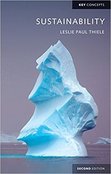We have all been challenged by the message that we must achieve "sustainability" or society may "collapse." What must be sustained, for whom, and for how long? What does it mean for a society to collapse? Have past societies collapsed or transformed?
In this course we investigate social and environmental sustainability and collapse by considering in-depth archaeological case-studies of both from the past, especially the North American Southwest. Our examination ranges across a diverse intellectual landscape: from the interdisciplinary concepts of resilience and complex adaptive systems to traditional archaeological considerations of the influence of natural hazards, conflict, and inequality on human populations.
To provide depth to your understanding, we will work together on a single research question: "What were the causes of demographic decline in the North American Southwest, 1200 to 1450 CE?" Our method will be a systematic, cross-case comparative analysis of depopulation in the Southwest. This is original research and, depending on our progress, may result in a manuscript submitted for publication. The work is important so that we can gain insights to inform our and the public's understanding of contemporary problems (e.g., sustainability and collapse). Thus, the course will contain a strong emphasis on research methods, creating new knowledge, and interdisciplinary collaboration among students.
The central question you will consider throughout the course is: "Can an understanding of the past inform the future?" The course neither begins nor ends with an answer; you must come to your own thoughtful (evidence-based) conclusion.
Bottom line, you'll:
In this course we investigate social and environmental sustainability and collapse by considering in-depth archaeological case-studies of both from the past, especially the North American Southwest. Our examination ranges across a diverse intellectual landscape: from the interdisciplinary concepts of resilience and complex adaptive systems to traditional archaeological considerations of the influence of natural hazards, conflict, and inequality on human populations.
To provide depth to your understanding, we will work together on a single research question: "What were the causes of demographic decline in the North American Southwest, 1200 to 1450 CE?" Our method will be a systematic, cross-case comparative analysis of depopulation in the Southwest. This is original research and, depending on our progress, may result in a manuscript submitted for publication. The work is important so that we can gain insights to inform our and the public's understanding of contemporary problems (e.g., sustainability and collapse). Thus, the course will contain a strong emphasis on research methods, creating new knowledge, and interdisciplinary collaboration among students.
The central question you will consider throughout the course is: "Can an understanding of the past inform the future?" The course neither begins nor ends with an answer; you must come to your own thoughtful (evidence-based) conclusion.
Bottom line, you'll:
- gain an in-depth, scientifically informed, understanding of the collapse and sustainability of past societies
- work in an interdisciplinary team to conduct original research.
- develop an informed (by the evidence) and reasoned (by your own efforts) perspective on the uses of the past for the present.
- decide if past peoples and events have anything to teach us that will help us address current sustainability issues.
- learn some of the reasons societies have collapsed.
- improve you ability to construct persuasive arguments with original data so you can use this skill in any career.





